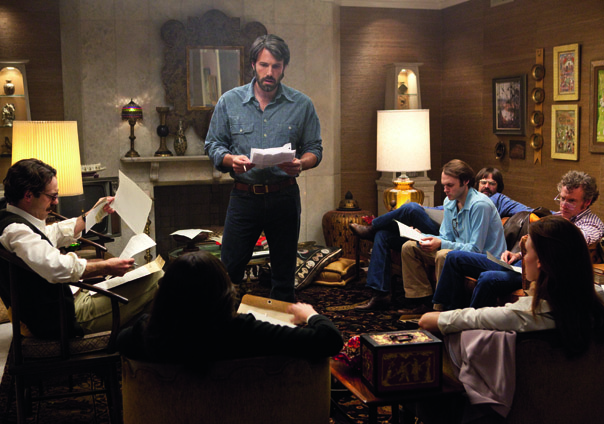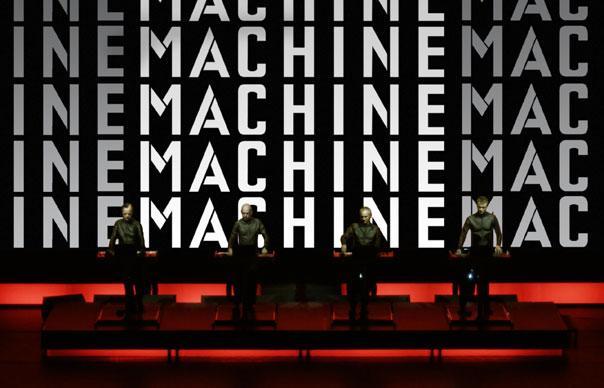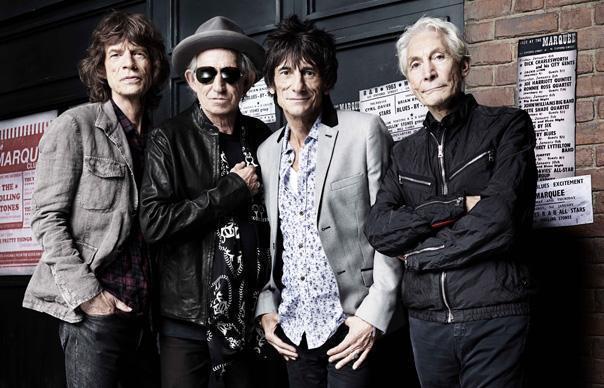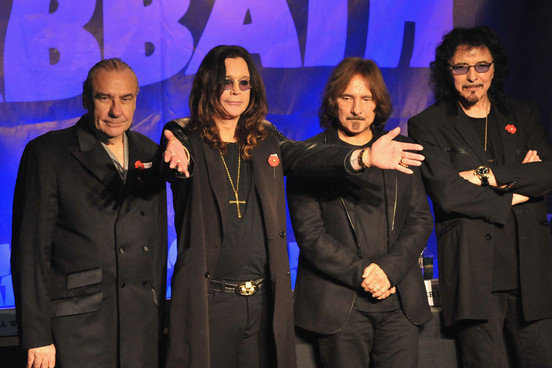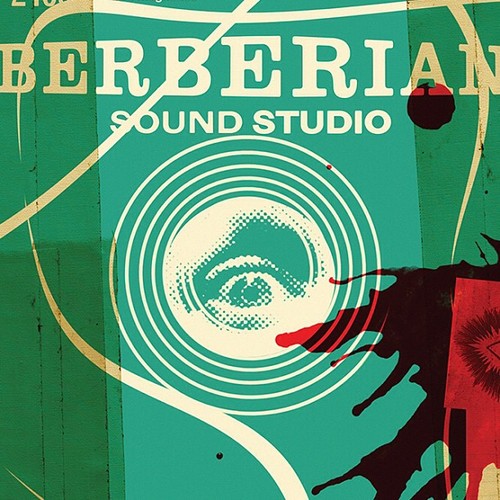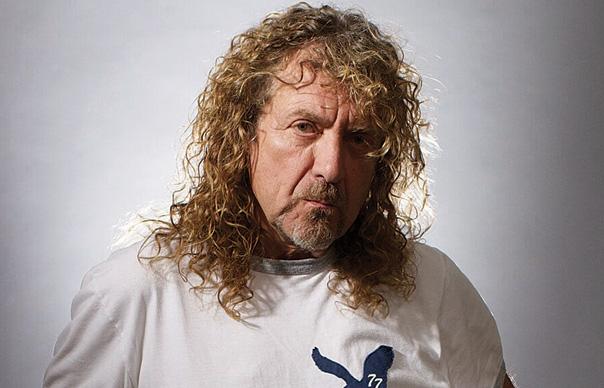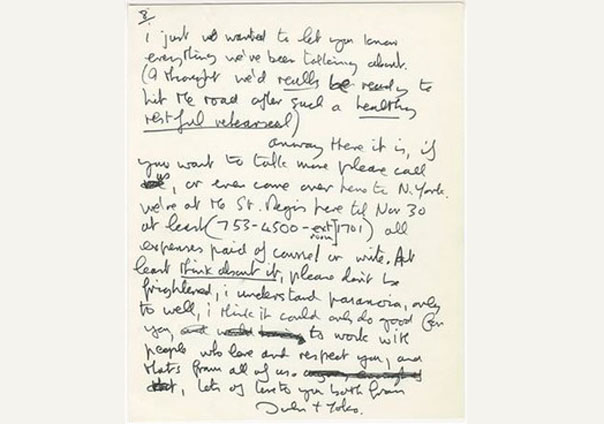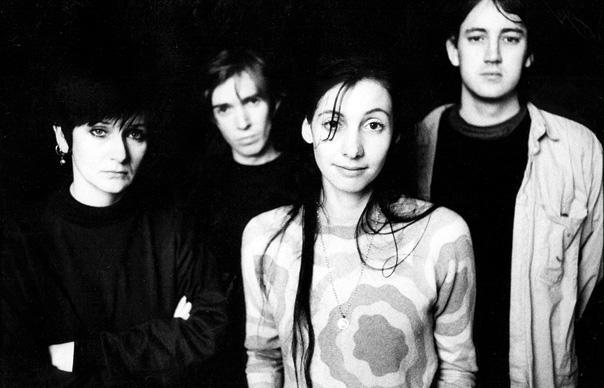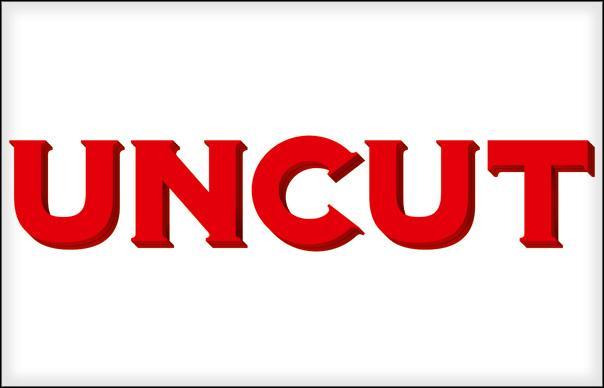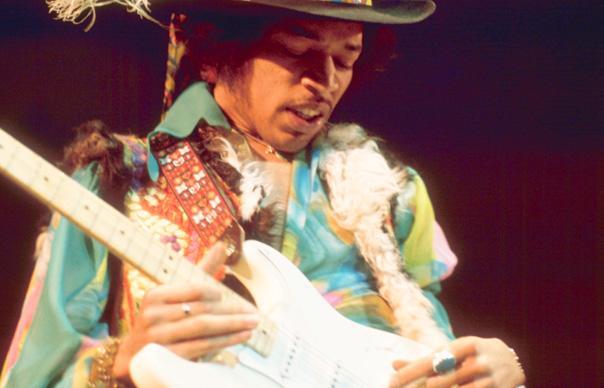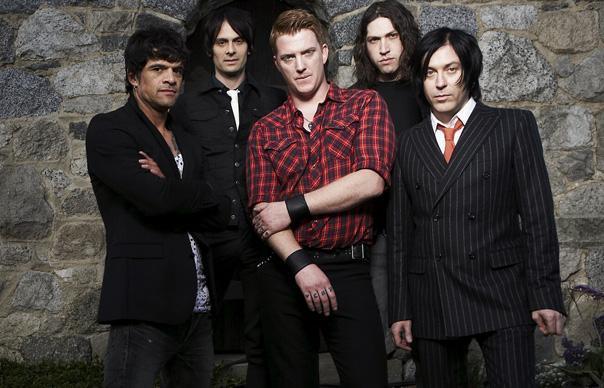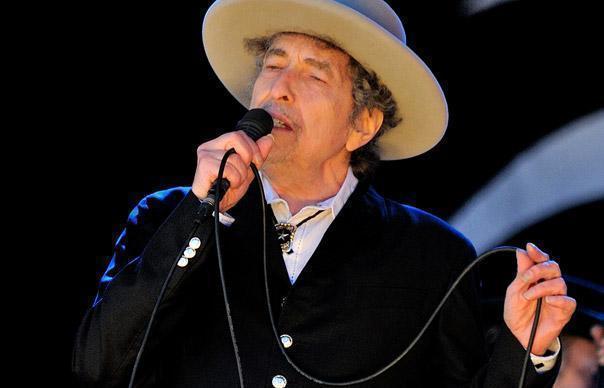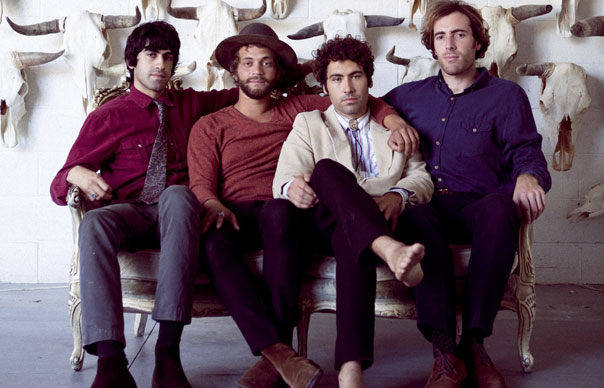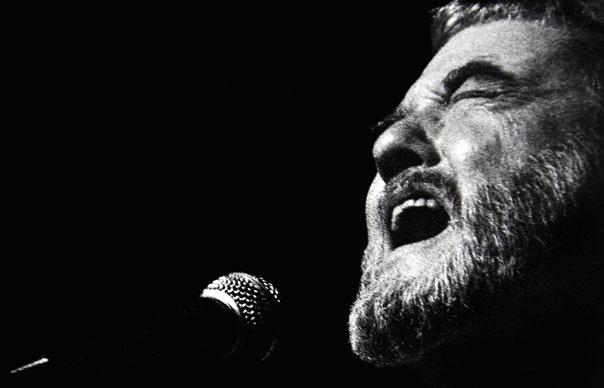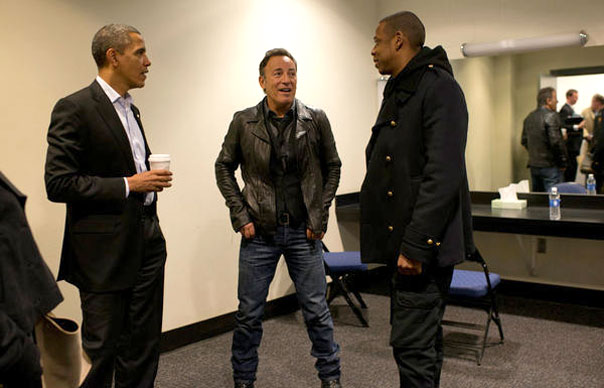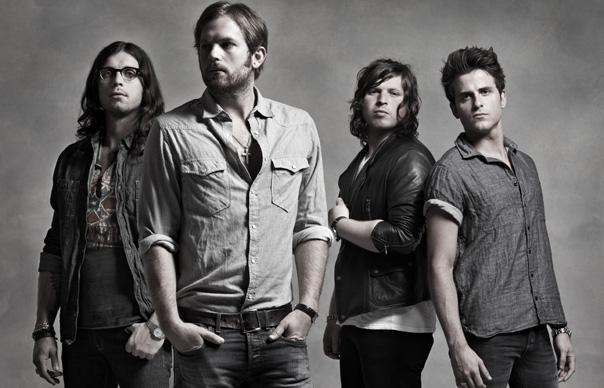The Stones’ new compilation, GRRR!, is reviewed in the new issue of Uncut (December 2012, Take 187), out now, so for this week’s archive feature we head back to Uncut’s April 2008 issue (Take 131). Mick Jagger is micro-managing the release of their new, Scorsese-directed concert movie, Shine A Light. Keith Richards is lounging on a Caribbean beach with his dogs. They both find time, however, to tell Uncut about pet hygiene, “fucking crap” modern music and having rebellion thrust upon them. Words: Andrew Mueller
________________________
“Yesterday,” says Keith Richards, from the home he’s had for the past five years on the Turks & Caicos Islands, in the Caribbean, north of Cuba, where he’s lounging, you like to imagine, on a sun bed, a large glass of something cold and strong in his hand, waves lapping at the shore of a beach, “I took the dogs to the beauty parlour.”
Dogs?
“I’ve got a Labrador and a little mutt from Russia. He was a stray in Moscow stadium, who worked his way into my dressing room. His name is Rasputin. Almost 10 years ago, that was.”
How, I wonder, no expert on these things, did he get a stray dog out of late-’90s Moscow?
“Well, this is very interesting,” Keith says, ready with a typically raspy anecdote. “One friend I knew, a guitar player who used to work in a KGB band. I called his number and told him I had this dog, and could we sort it out. They took care of him for six weeks, got all his shots, and then shipped him over. Although apparently it caused a divorce, but that’s another story.”
Indeed, it most likely is. But we are here, ostensibly at least, to talk of other things, among them Shine A Light, Martin Scorsese’s film of two shows held at New York’s 2,800-capacity Beacon Theatre in October 2006. Given the volume of live Stones material – from The Stones In The Park to Cocksucker Blues and the DVD souvenirs of more recent tours, it’s fair to ask what Shine A Light could possibly add to the yards of film already dedicated to capturing, over the last 45 years, their every move.
“Why would we want to shoot another live show?” Keith muses, before quickly answering his own question. “Martin Scorsese.”
“My idea for this movie,” explains Mick Jagger the following day, “was that we were doing this show in Rio, on the beach. I thought it’d be great to film this, because it’d look amazing – all the background of Rio, all the birds up and down the beach, great. I was talking to Martin Scorsese about some other projects and asked him if he’d like to do it, and he said no. He said he didn’t want to do big, he wanted to do a small, intimate Stones movie, so he talked me into doing it at this theatre [the Beacon]. Marty’s idea was to do an art house movie, with all the intimate relationships shown up. In the end, the joke was on him, as it’s all being blown up into IMAX, so we should have done the Rio show.”
Shine A Light is a celebration, rather than a rugged documentary, including guest appearances by Jack White, Christina Aguilera and a show-stealing Buddy Guy – as well as an introduction by Bill Clinton, who even brings along his mother-in-law for a backstage meet-and-greet with the band.
Scorsese illustrates the band’s backstory with illuminating – and often hilarious – archive footage. Largely a montage of The Rolling Stones’ encounters with the press over the years, it amounts to a series of studies of conflict between fatuity and ennui – decades of bedazzled or bewildered reporters running aground on the obstacles of Jagger’s supercilious petulance and Richards’ wry mockery.
But mostly Shine A Light radiates a genuine, heartening joy in performance among four men who would, you’d have thought, have more excuse to be jaded with it, and each other, than most. It also serves as a powerful elegy to an enduring, if often famously fractious, friendship.
Keith Richards and Mick Jagger in particular, co-owners of one of the most famous songwriting credits of all time, have known each other more than half a century, since meeting at Wentworth Primary School in Dartford in 1951. Down the last 57 years, there have been numerous fights, fallings out, drug busts and more, from Redlands to Toronto, Marianne to Anita. Shine A Light reinforces the roles they’ve come to play in the popular imagination – Jagger the hyperactive narcissist onstage and workaholic organiser off, Richards the raffishly avuncular buccaneer. It seemed as good a cue as any to ask the pair of them what Shine A Light helped them see in themselves, and each other.
Keith went first. Although he’d not yet seen the finished film – “They sent me the DVDs but I want to see it in a theatre – it’s Marty!” – he was aware of the archive footage interspersed throughout.
_______________________________
UNCUT: As one of the few people whose entire adult life is on film, what do you think of the young Keith Richards when you see him now?
RICHARDS: I’ve been thinking about that, looking at it. It’s not the first time I’ve been confronted with my youth, but I feel comfortable with him. I know what he was like then, and we ain’t that much different. We’ve made a few whoops-a-daisies, but apart from that we’re fairly constant.
Is there anything you’d like to be able to tell him?
Yeah, I’d have said, “Lay off the dope.” That’s my advice now to all younger, uh, members who are into this sort of thing… “Oh, give it up, it ain’t really worth it. I knoooow the fascination, but it ain’t worth it, pal.”
The film also reinforces the idea of a dichotomy between Jagger the control freak, and you the amiable, good-time guy. It’s not the first time this has been suggested, of course, but how accurate is it?
Where there’s smoke, there’s fire. And Mick’s a maniac. He can’t get up in the morning without knowing immediately who he’s going to call. Meanwhile, I just go “Thank God I’m awake,” and wait for three or four hours before I do anything. Mick… yeah, he is a power freak, and there’s nothing we can do about it. I don’t want to do anything about it. Let him bugger about. It doesn’t make any difference to what we do.
There’s a set-up at the start, where Mick chooses all the songs and keeps tweaking the set-list – is that how it is?
It has to be. Listen, he’s the one who has to go out there and sing it. From my point of view, from the band’s point of view, it’s the frontman that calls the shots on what to sing. He might say, “That one’s too high for me tonight, I can’t make it.” There’s a lot of physical things that go on. I might make an adjustment here and there, say “Change that one to that one as they’re in the same key, even though you didn’t realise it,” to break it up a bit, but otherwise I just try to make it easier for Mick. A band’s job is to make the frontman feel confident. If he feels that there’s some division behind him, he’s not gonna feel… well, that’s the whole point of a band. Once you’re up there, it’s all for one, one for all.
That said, though, the film does come across more than anything else as a kind of homage to Jagger’s physical presence…
Excuse me while I laugh…
What do you think of that focus on him?
He’s a bit vain, let’s put it like that.
It’s not unheard of in lead singers…
Well, what do you expect? We want a vain bloke up there, don’t we? Meanwhile, the band can go to work. Vanity will not carry a band. But a band can carry vanity.
Has he ever tried to interest you in his fitness regime?
Bollocks, no. Everybody’s different. I think a lot of Mick’s frenzy about physical stuff is actually mental. That’s the way he is. For me, doing a Rolling Stones show for two hours a night, that’s enough fuckin’ exercise, you know? Then I’ve got to go to bed with the old lady, bonka bonka. You know?
Uhhh… OK.
What I’m trying to say is that I’m trying fit my life’s work, whatever that is, into my domestic life without any big difference. I pretty much operate the same off or on.
Is finding equilibrium between the two difficult?
It’s killing me, pal. But I’m used to it.
There’s a great shot at the end, of you, Mick, Charlie and Ronnie that focuses on the detail of your faces. I was reminded of that line of Orwell’s, that at the age of 50 every man has the face he deserves. Do you think that applies to the Stones?
He was probably right. Though he didn’t get much beyond it.
Or even to it, I don’t think… 46, if memory serves.
Well, that’s what happens to Burmese policemen.
But it emphasised the singular position you’re in, that you’re charting new territory. We don’t have any idea what a rock’n’roll band of pensionable age is supposed to look like, or be like.
Rock’n’roll has only existed since, what, 1956, so it just depends who can hang. We’re not going for the longest fall of all time, it just happens that we like to do what we do, and we still do it better than most. Rock’n’roll takes a while to learn, funnily enough.
Are you still protective of the Stones’ reputation? I ask as you rather famously wrote a letter to a Swedish newspaper last year, taking umbrage with a bad review.
That was a prick, you know. The guy’s got a hard-on against me and I decided to answer him – just told him to shut his gob or I’d run his man out of town. It was just so unnecessary, and so untrue, and I’m looking at all the other reviews of the same show and they’re all totally the opposite, and I’m thinking, ‘Hello, this guy, I know him.’ I don’t know. Maybe I screwed his old lady…
I was surprised, though, because I thought surely if there’s one musician who must be past having to care what anyone writes about him, it’d be you.
I don’t care what shit they say about me personally, but when you knock the band, up comes the shield and the sword comes out, and there’s St George, know what I mean? Hey, how many times have I been trashed, man? Shit, I’m the expert at it. I just decided to let this one have it. He’s only a Swede, after all. He’s not even a turnip, is he?
So you’ll defend the band, but not yourself.
Absolutely. Myself, I can take any knock there is. I’ve taken ’em all, several more than anybody deserves. But when you’re knocking the band, as a unit, get out of here. That deserves a reply.
Is the loyalty to The Rolling Stones as an idea, or to the other guys in the band?
When you’ve run something this long, and put a band together that everybody agrees is fantastic, then some arsehole says they’re useless, you’ve gotta do something, right? I mean, I could have had him shot.
He might have been reflecting what a lot of people would assume, that after all this time it can’t possibly still be that exciting for you.
It has to be. Once we’re up there, it’s let’s go, we’re The Rolling Stones, man, we want to give them the best show we’ve got and we want to give ourselves the best show we’ve got. We always want to impress ourselves.
Do you ever have days when you feel like you’re just clocking on, and that you just want to bash the concert out and go home?
Never. Even if you feel like that before you go on, what I’ve found is that there’s amazing adrenalin. Even if you don’t feel like doing it when you’re going up to the stage, by the time you’re into the first song, everything changes, and you sometimes come off cured, which is amazing.
Steve Van Zandt told me that you can never quite remember the feeling of walking onstage in front of thousands of people, and that’s why it’s still exciting to do.
That’s right. You just hope that it’s there, and up until now, it always has been. There’s a certain energy when a band gets together – open the cage and let the tigers out.
There’s also that iron-clad law that all great bands are more than the sum of their parts, as they usually demonstrate by going outside the band and doing something not as good.
Absolutely. It’s very rare that you can put a bunch of guys together and do anything. You can put great musicians together, make superbands, but that doesn’t make a group. It doesn’t click, or they’ve not been together long enough. A certain amount of experience does help.
Do you ever have nights – on the last tour, for example – where you come offstage and just think you sucked?
No… we went out there every night to try and top the last one.
And at those moments when it’s just the four of you in a room, what do you talk about?
A-ha, ha, ha. Good one, Andrew. We talk about the music. Charlie might come to me and say, “I think I should change to brushes on that one.” Just minor details, you know. You’re trying to be Mozart, but you ain’t ever gonna be.
Going back to the film, I thought that was a nice moment when you gave Buddy Guy your guitar after his guest spot…
I did indeed. He was fantastic that night, so I said, “This is yours, mate.” It was one of my favourites, but he just shone that night. I’ve got loads of other guitars, but that was a special one, and I just felt that I should give it to Buddy Guy for all that he’s given to everybody else.
It seemed that there was a definite hierarchy in place, though. It was the difference between Jack White and Christina Aguilera being beside themselves that they were onstage with The Rolling Stones, and The Rolling Stones being beside themselves that they were onstage with Buddy Guy.
I guess you’re right. Buddy Guy comes from our generation. We were listening to Buddy before we had two pennies. He has a little seniority on us, but not that much. Buddy Guy is… Buddy Guy. You’re talking about one of the greats here. The others, Jack White… hey, cool. Probably be all right. The other one I can’t even remember.
Christina Aguilera. I thought she was great.
Yeah, very nice. Very nice chick. Nice bum. But if you only have one song, you don’t have much time for interaction, and usually we blow their wigs off. Playing in front of the Stones is kind of a surprise to some people.
Jack White looked terrified.
He did a good job. It’s kind of hard to walk up in front of something like that.
The gift to Buddy Guy appeared a sort of sportsmanlike concession – do you still feel like you have anything to learn about the guitar?
You never stop, man. That damn thing is the worst mistress in the world.
How often do you play, just for yourself?
Some days, probably hardly at all. Other days, I wake up in the middle of the night, and it’s all quiet, and I sit around and play for hours.
Have you ever managed to get your head around the idea that you’ve written three or four songs – well, three or four riffs – which can probably be played by everybody who owns an electric guitar?
The de rigueurs.
Well, they are. But “…Satisfaction” is one of the first half-dozen things everybody learns.
It’s pretty easy.
It is. But it’s weird, isn’t it?
It warms my heart, man. Are you kidding me? That other guys want to play what you played. That’s how I started. The idea that you’ve passed it on, like some kind of troubadour thing… yeah, of course. It warms the cockles of my fuckin’ heart.
When you play them live, these songs that everyone knows, do you have a feeling that you’re taking them back, stamping your mark back on them?
Never thought about it in that sort of aspect. I’m just looking round to make sure everyone’s in sync. Only later on, you get all the crap. You have to sublimate your ego with everything like that, as much as you can, except for the lead man, who has to boost his to the max. As part of the band, you’re just watching the singer, where he goes, what he’s doing… it’s something you don’t think about, just something you do. It’s weird.
So you don’t feel possessive or proprietorial about them?
No, not in that way. I’m very proud of them. Well, some of them. But let it go. Also, I’m interested in what other people might do with them, as a songwriter.
Any particular favourite interpretations?
You can’t go wrong with Otis Redding’s “…Satisfaction”, or Aretha Franklin’s. There’s plenty of others, but let’s leave that at that. After that, I felt like I’d actually arrived as a songwriter.
You could afford a certain complacency at that point, I guess…
Well, not really complacent, just that you’d joined another club, that no, you were a real pro. I mean, I always felt like a fuckin’ amateur.
That’s a good sign, though, when successful people feel like they’re still getting away with it.
I mean, I knew I was pretty good, but I had no idea about any of this shit, and suddenly at 19, I’m a fucking star. That’s never changed.
Another thing I thought the film communicated well was a genuine joy in the act of playing music.
You can’t fake that. Pretend to be happy, forget about it. It might be a movie, but we ain’t acting.
Has anyone ever floated the idea of the full-blown Keith Richards biopic?
There’s all sorts of things going about, but I don’t take them seriously. The story I could tell couldn’t be told.
So you’ve not given any thought to who’d get the lead role.
No, I’ve no idea. There’s not a punk out there that could do it.
Has there been any discussion of the next Stones project?
No. At the moment, I think we’re all still getting off that tour. It takes about four or five months to come down off all that adrenalin.
Really? Still?
It’s really only in the last two or three weeks that I’ve stopped waking up wondering if it’s a play day or a travelling day. It takes that long, yeah. I always expect it, but still you’ve got to go through it. It’s like a long withdrawal. When you finish, you want to start again. Especially after two years, you get so used to that adrenalin punch, and when it gets cut off, well… it’s not as bad as smack, but it’s pretty bad.
How does your post-tour comedown go?
I went straight down to Sussex and spent two months down in old Redlands, hunkering down in my decompression chamber with my mates, and my kids and my grandkids – my family all live around there now, and I lie there and they feed me.
Which of those two states – the adrenalised life on the road or domestic tranquillity – seems normal to you now?
Normal life is a good idea. Is there such a thing for anybody?
Fair question. Do you think that hyperactivity of Mick’s you mentioned is his way of coping with it?
I don’t know. Maybe that’s his way of getting over it. We all handle it in different ways. I go comatose. Mick has to be interfering with this or that. I don’t know, man, I’ve never got to the bottom of that.
Do you spend time together outside the band context?
Usually we ignore each other for several months, and then there’s a phone call saying, “I’ve got this song.” Someone gets itchy or antsy. That’s how it always starts.
How would you say you get on now, measured against the past?
All of this Richards and Jagger fighting stuff; sure we have some spats, but who hasn’t? Have you had a brother that long? So of course we’re gonna have fights, but they get blown out of all proportion. I think we’re over all that sort of shit right now. Michael is a very, very closed chapter and I let him keep the book closed unless he wants to open up. I love to work with him whenever he wants to work. I’d never provoke him, but at the same time… what are you going to do with a guy like that? I guess the secret is that we all leave each other a certain amount of space. We’re used to each other’s foibles, and we can live with them.
What did you think of your portrayal in Ronnie Wood’s autobiography?
About 50 percent off. I read some of the serialisation in the papers last year. It stands up, ah, not very well against Bill Wyman’s book. I don’t wanna listen to that crap. Ronnie is a bigmouth. I love him dearly, but he’s a flap-flap. I mean, I can never remember Ronnie pulling a gun on me. Some of these stories were so out of the picture that I just gave up and laughed. He wouldn’t know which end to point.
What’s your favourite Keith Richards story?
I didn’t mind the monkey glands, because I planted that. I was going to Heathrow on my way to Switzerland. I was going to a clinic, by the way, to get myself cleaned up, but I threw out blood changes and monkey glands because I was being followed to the plane by the Street of Shame. Lovely how they stick, isn’t it? Like the one about snorting my dad. You buggers will fall for anything.
What are you listening to at the moment?
I like blues. Some country music. I don’t listen to what’s going on. I don’t like CDs, quite honestly. They sound tinny, to me. I’ve not even heard The Arctic Monkeys. I know of them, but I don’t know anything they’ve done. I didn’t like Oasis, I didn’t like the Sex Pistols, I don’t like any of those English rock’n’roll bands. They’re all fucking crap.
So you weren’t at the Led Zeppelin reunion…
They had one? Well, well done Jimmy and Robert. Fuck off. “Stairway To Heaven” don’t make it for me, baby. I’d rather have “Honey Bee”, by Muddy Waters. And Jimmy will know what I mean.
What are your immediate plans, then?
As much kicking back in the islands as I can. I’m lying on a beach here in 85°. I’ve got my dogs and a couple of mates with me, and we’re just hanging. Bit of fishing, and letting the weather go by.
Was there a particular highlight of the A Bigger Bang tour that sticks in the memory?
That’s hard, after so many shows. We really liked the Dome, the wotsit Dome in London [he means the 02]. Great acoustics. Really enjoyed playing the room, really nice to play to London crowds again.
You spoke earlier about advising younger musicians to give the dope a miss. But do you ever worry that you – especially that younger version of you, who did look pretty cool and made some great records – rather serves as an enticement to take it up?
Woah. That’s hard. I’m an example both ways. There’s nothing you can do about that. You can’t set yourself up as an example. The only example is that I’m still here. I went through there, and I came out the other end, and blah blah. Every generation is going to go through the same thing, one way or the other. They just change the flavour of the drug. I don’t feel any responsibility for it. I think we’ve been absolutely an example of propriety. All we did was get busted a few times and piss against a garage wall, but that was then and this is now and it’s a whole different ball game for them.
That’s also a point the film reinforces, that there aren’t going to be any more careers like yours, that there won’t be any more bands lasting decades.
I don’t know about that, but I know what you mean – the flightiness and fleetness of communication and music, it’s a ball of confusion.
I mean more that notion of a benchmark, like the fact that everyone with an electric guitar can play “…Satisfaction”, or “Jumpin’ Jack Flash”. It’s hard to imagine that any songs being written now are going to endure like that.
It depends if they can stick. There’s been very few bands who’ve been able to do that. I think we’re up there with Count Basie and Duke Ellington, and even those kept changing their membership. I suppose the astounding thing – not to us, but from outside – is still this idea that rock’n’roll is supposed to be for people from 18 to 25, and then you’re out. We never felt that way about it, although when we started, we were looking at that first record contract and thinking, ‘Oh, Christ, two years at the most.’ But things happened that made it possible to keep on keeping on, and none of us are very good at anything else. It’s a matter of hanging onto your job, you know.
When you first went to America, more than 40 years ago, you were regarded as marauding barbarians presaging the collapse of civilisation as we knew it, especially in the South…
You could get arrested for being girls, down there.
And in 2007, you’re being introduced onstage by a former president from Arkansas.
A great influence I’ve had.
Indeed. So who won in the end? Rock’n’roll or
the establishment?
I don’t know. Is there really a fight between the two of them?
Didn’t it seem that way in the ’60s, at least?
Nobody set up rock’n’roll to fight an establishment. Tell it to Little Richard. Tell it to Elvis, tell it to Jerry Lee Lewis. Fight the establishment? Fuck it, we just wanted to be free. We wanted a job where we didn’t have to say ,“Yes Sir, No Sir.”
So what did you think of people who did think you were foot soldiers in some cultural crusade?
We just thought they were manipulating us, or spin whatever we did their way. I wasn’t so interested in rebellion as a political thing. I just wanted space to move.
And finally, on the subject of saying “Yes Sir”…
It surprised me, it still does. London School of Economics, I thought he’d disdain such a small, paltry gift. But then Charlie says to me, “You know, he’s wanted one for years…” I had no fuckin’ idea. No, I thought Mick would be the sternest against anything like that, but there you go, they all crumble in the end, don’t they?
_______________________________
The day after taking to Keith Richards, I’m on the phone to Mick Jagger and the experience of interviewing him so soon after talking to Keith confirms nothing more emphatically than the stereotype of their characters. Where Richards chunters away cheerfully for nearly an hour, and seems willing to participate in actual conversation about almost anything, time on the phone with Jagger is brief, clearly snatched en route between other appointments, and nigh-on impossible to get much out of on subjects he doesn’t wish to discuss.
Jagger is in cheerful enough form today, but still unreceptive to anything beyond the most superficial probing, and always giving the impression that he urgently needs to be elsewhere – after about 10 minutes, all the answers start ending with “Are we done yet?” or “Is that enough?”
It also becomes swiftly clear – again conforming to popular image – that where Richards has yet to see the completed film, Jagger has been hovering behind Scorsese through every edit, permanently watchful, scrupulously vigilant.
“I’ve seen it in all its various stages,” he confirms. “From the roughest cut onwards.”
The opening sequences of Shine A Light emphasise the idea of Jagger as an obsessive control freak – we see him on a plane, sifting through lists of songs, quibbling about arcane details of the backdrop and obdurately refusing to share the setlist with a despairing Scorsese until seconds before curtain-up. Which is where we pick up the conversation.
_______________________________
UNCUT: Those early scenes with you buggering Scorsese about do rather reinforce the idea of you as a micro-managing whipcracker.
JAGGER: It is a movie.
So there’s no truth in that idea?
I don’t think I micromanage, but someone has to do the setlist, and who else is going to? Marty had certain numbers in mind, but a lot of the stuff he wanted we never played, nor ever wanted to.
It’s a very intimate portrait of people on stage, and the way they interact with each other while performing. Given your band’s history in particular, did placing those relationships under such scrutiny worry you at all?
Not really.
What also comes across, between the principal four of you, is a pleasure in performance, which is quite heartening after all this time.
I’m glad that comes across. And it was a good show. I mean, it could have been a terrible night, with everyone slagging each other off. And then we wouldn’t have put it out, but those are very rare. I think that was a good typical night in a theatre.
Have the relationships in the band changed much since those early moments shown in the film, or do you think there’s an essentially constant dynamic that has kept you together all this time?
I’m sure it’s not the same at all.
How has it changed?
Well, you’ve got different people, for a start. Some people are dead, some people aren’t there any more. So it’s a different dynamic – you don’t have Bill, you don’t have Brian. There are a few things that are the same from what you see from 1964, but that was so long ago you can’t expect me to remember.
What do you think when you see yourself, 45 years younger?
‘So good-looking. No wonder they were successful.’ Well, there’s a striking resemblance to my own son, James. It’s fantastic. My younger son thought it was James, when he saw a picture.
What would you say to the teenage you?
That’s a funny one. I’d just warn him to watch out for what was coming. There’s an incredible naïveté there, and the charm of it is that naïveté. I’ve seen all those very early cuts before, of course, and we spent quite a lot of time picking those, as I was trying to find some that haven’t been seen too much, but still said all the things we wanted to say about the different time zones. So they’re quite fun to review. Marty and I had a lot of discussions about those.
There’s also the naïveté of the media trying to understand you. That World In Action footage in particular is a hoot.
Yeah, yeah, yeah. Well, it was a very different time. You see those press conferences, with the guys all winding up their cameras. And slightly more deferential – but not. Just a whole different attitude. I don’t really know.
They didn’t really know what to do with you.
No, they didn’t know. It was all new. They had The Beatles, I suppose, but it was all the same time. Before that pop singers… well, they hadn’t said anything. I don’t think they’d ever done press conferences before.
When I asked Keith, he said that idea of the Stones as avatars of rebellion always kind of baffled him.
I think Keith’s right about that. We didn’t set out to do that, but we had rebellion thrust upon us, so to speak.
Was that hard?
Yeah. Between the reaction of people, which we didn’t expect – their shock and horror, plus of course the fact that the press loved that, so they built it up even more. We weren’t ready for that. We just played. We didn’t have opinions. But suddenly we had to acquire opinions about everything, and deal with the fact that we’d been set up to play this role.
What was the worst of it?
We got insulted a lot. People made fun of us. In America especially. You had to build this shell, a bit, because a lot of it was hurtful as we weren’t ready for it, because that wasn’t what we set out to do.
Do you still feel protective of the band’s reputation. Or, put another way, do you still care what anyone thinks of you?
Er – no.
You didn’t feel tempted, then, to countersign Keith’s letter to that Swedish newspaper.
I didn’t care about that personally, but Keith for some reason seemed to take that on board rather a lot. I dunno.
Do you feel more comfortable being the kind of band that gets introduced by former presidents?
You can’t have it both ways. Now we’re kind of respectable. I guess if you’re around long enough, you acquire that kind of patina.
Notwithstanding the fact that you’re the frontman, was it your intention that the film become such a celebration of your physical presence?
I can’t really see it like that, even though I’ve seen it so many times, from tiny editing rooms to the Ziegfeld Theater, I don’t think I can really look at it objectively. I mean, I do my best to be objective in my cutting suggestions and stuff, but the big picture of it probably eludes me.
The detail is quite merciless, though – every wrinkle, every curl of lip.
I think that’s what Marty wanted, and obviously I see that. And I think it’s interesting.
Are you always conscious of what you’re doing out there? Is it always a calculated performance, or are you ever transported?
You go between one and the other. You obviously have to be conscious of what you’re doing. It’s not an out-of-body experience. But at the same time, Marty would say, “On the fourth number, where are you going to be on the stage?” and I just don’t work like that. I can be somewhere if you want me to, but I can’t tell you in advance. It’s all to do with stagecraft. If you know the steps of the dance really well, you can improvise within it. So you get these… strange moments, but most of the time you know exactly what you’re doing. It’s like playing football, and how can you explain that? You’re doing a lot of things at once, but as you’ve done it so much, it’s going on in the back of your mind, so it’s not an entirely conscious process.
This may seem a frivolous question…
Yeeeeeessssssssss?
… but how differently do you think things might be for the Stones if middle age hadn’t treated you so kindly – if you’d got fat or gone bald?
Well, I’m still wearing the wig, and it didn’t happen, did it? That’s a really seriously frivolous question.
Is there one thing in particular that has sustained the relationship between the members, allowing for the well-publicised hiccups?
Well, no. There’s many, many things. A willingness to compromise – if you’re in a band you have to do that a lot, and it’s a drag sometimes, but it has to be done. A willingness to slog on regardless. But also there’s a real love of what you do, and people liking what you do. That’s a really important part of it. If people didn’t like what you do, you wouldn’t do it.
Has the relationship between you and Keith got any easier?
No.
But you must have come to some understanding by now.
Well, all long relationships have their ups and downs. The thing is not to exaggerate the down times too much. We haven’t really had any arguments lately. I could dig some up from the past, but that’s a bit boring, really.
I know you’ve just come off a gigantic world tour, but have you started thinking about the next thing?
I’m always thinking about the next thing. I’ve got some ideas, but I don’t know if they’re going to work. Anyway, are we done?
Up to you, really.
Lovely to talk to you.
_______________________________
And with that, Mick’s gone – important things no doubt to do, business to attend dutifully to, crucial decisions to be made that only he in his opinion can make, people of influence to meet and possibly cajole, deals to be struck, the new film to talk up, a whole day before him of micro-management and whip-cracking.
Meanwhile, in the distant Caribbean, you can perhaps hear Keith chuckling, out there somewhere on an island to the north of Cuba with his dogs, thinking perhaps of Mick and ordering another drink, no calls to make, no-one to meet but his mates, just glad to have woken up to another day with not much more to do than what he’s doing and happy with that.



